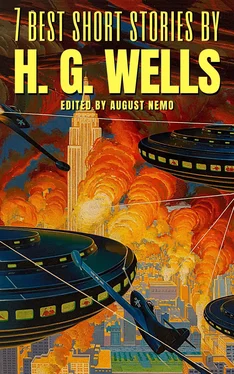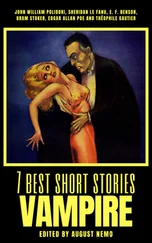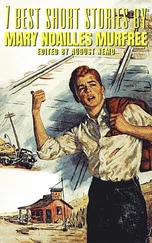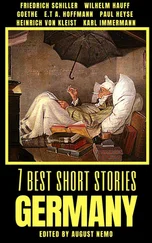I come now to the six novels which represent most truly the striving, persistent idealism of the mature Wells. In these books he has come to the mastery of his own technique—so far as a man may ever master it. He admits that there remain inexpressible visions, he is apt at times to be overtaken by his own mannerisms (a fault that in no way affects the enjoyment or enlightenment of the average reader), but he has wrought and perfected a delicate instrument of style that is finely adapted to his purpose. I cannot avoid speaking of "purpose" in relation to these five books, and yet the word is misleading. I do not mean by it that Mr Wells has ever sat down to write a novel with the deliberate intention of converting an honest reader or so. But I do mean that he has tried very deliberately to express his own attitude in these books, and that whether or not he was intentionally a propagandist, he has done his utmost to explain and to glorify that attitude of his. Perhaps I shrink from that word "purpose" too sensitively, because it is so naturally associated in the mind with all that is clumsy and didactic in fiction. The "novel with a purpose," as the dreadful phrase has it, is a horrible thing, and none of this five could be so misdescribed. Nevertheless it is very plain that Mr Wells has deliberately selected his stories and his characters to illustrate certain points of view. The characters are consistent, and the story growing out of their influences and reactions is never distorted in order to score a point for the maintainer of a theory. But the preliminary selection cannot be overlooked. It has, without question, been made in each case to illustrate a thesis.
Ann Veronica (1909) opens an aspect of the sex question that has been amplified in later novels. The chief person in the story illustrates for us the revolt of young women against the limitations of a certain, the most representative, type of home discipline. Ann Veronica was a well-educated young woman with that leaning towards biological science which seems an almost necessary element in the make-up of Mr Wells' exemplars of the open mind. She came to an open quarrel with her father on the question of attending a somewhat Bohemian fancy-dress ball, and she had the courage and determination to uphold her declaration of independence. She ran away, came up to London from her father's suburb, took lodgings and essayed quite unsuccessfully to make her own living. She failed in this endeavour because she had not been educated or trained for any of those few and specialised occupations that women may attempt in modern conditions. She learned by experience various essentials that had been omitted from any teaching she had received at home, and ended that phase of her life by falling in love with Capes, demonstrator at the Westminster Imperial College, a man who was living apart from his wife. Ann Veronica's story is the first serious essay in feminism—a term that takes a much wider meaning in Mr Wells' definition than is commonly attributed to it. The novel presents the claim of the woman to free herself from the restrictions that once almost necessarily limited her sphere of action, restrictions that are ever becoming more meaningless in a civilisation that has enforced new economic conditions. But Mr Wells goes far beyond that elementary proposition. He has tried in Ann Veronica—and again with a more delicate probe in Marriage and The Passionate Friends—to touch the hidden thing that is causing all this surface inflammation. He has analysed and diagnosed the exposed evil, always it seems with a certain tentativeness, and we are left to carry on his line of research; many of the difficulties of the problem are indicated, but no sovereign specific for the malady.
Tono-Bungay (1909) touches only casually on the sex question. The involved love affairs of George Ponderevo are less essential than the career of his uncle, the inventor of the patent medicine that gives a title to the book. In many ways Tono-Bungay is the best novel that Mr Wells has given us. It is written in the first person, a narrative form that afterwards served to convey Mr Wells' interpolated criticisms of the bodies social and politic in something nearly approaching the shape of an essay, but in Tono-Bungay there are no important divagations from the development of the story. The framework of the book is provided by the life history of the narrator from early boyhood to middle age, matter interesting enough in itself even if it had not provided the means for revealing the inwardness of Edward Ponderevo's character and career. He was not a bad little man, this plump little chemist; a Lombroso or a Ferri would have found difficulty in classifying him as a "criminal type," however eager those investigators might have been to confirm their pet theories. Ponderevo's wife—the inimitable Aunt Susan—called him "Teddy" and his nephew endorses the appropriateness of that diminutive; he affirms that there was a characteristic "teddiness" about Uncle Ponderevo. He failed as a retail chemist in Wimblehurst. He was not naturally dishonest, but he had windy ideas about finance, and he was careless in the matter of certain trust monies. He was "imaginative, erratic, inconsistent, recklessly inexact," and his imagination led him by way of a patent medicine to company promoting on the Hooley scale. "Do you realise the madness of the world that sanctions such a thing?" asks Mr Wells in the person of the supposed narrator and points that question on a later page as follows:—"At the climax of his Boom, my uncle at the most sparing estimate must have possessed in substance and credit about two million pounds' worth of property to set off against his vague colossal liabilities, and from first to last he must have had a controlling influence in the direction of nearly thirty millions. This irrational muddle of a community in which we live gave him that, paid him at that rate for sitting in a room and scheming and telling it lies. For he created nothing, he invented nothing, he economised nothing. I cannot claim that a single one of the great businesses we organised added any real value to human life at all."
The enormous success and rapid failure of this futile, ambitious little chemist—a success that is, unhappily, only too conceivable and probable—are seen against the background of his nephew's life, Mr Wells has given a greater value and credulity to the legal criminalities of Ponderevo, by coming at him, as it were, through a wider angle; just as he achieves all the circumstances of reality in his romances by his postulation of an average eye-witness. But there are many threads in George Ponderevo's life that were not immediately intertwined with the Tono-Bungay career, and his love for Beatrice Normanby touches in quite another manner on the sex problem opened in Ann Veronica. In both these books the story is the essential thing, and the attack upon social conditions is relatively indirect. The general criticism is at times quite explicit, but it is subordinated.
In The New Machiavelli (1910) these relations are nearly reversed. The detailed exposure of the moving forces that stimulate our political energies, occupies long sections into which the human relations of Remington (the form is again that of an autobiography) hardly enter, except in an occasional conversation to sharpen up a criticism. This comment on politics (regarded in his own constituency, Remington says, not as a "great constructive process" but as a "kind of dog-fight") is the chief theme; subsidiary to it is the comment on a society that could waste so valuable a life as Remington's for the sake of a moral convention. Both comments point Mr Wells' expression of what he calls in this book "the essential antagonism ... in all human affairs ... between ideas and the established method—that is to say, between ideas and the rule of thumb." And he adds: "The world I hate is the rule-of-thumb world; the thing I and my kind exist for primarily is battle with that, to annoy it, disarrange it, reconstruct it." This confession is so lucid and characteristic that I cannot improve upon it, and yet I see that it is a statement likely to arouse considerable resentment, "Of course we are detestable," Remington admits in this connection; and in these later, more urgently critical novels, we recognise a little too clearly that note of protest, almost of defensive proclamation. And in none of them do we see it more definitely than in the book now under consideration. In many ways The New Machiavelli stands apart from the other novels. I find it a little bitter in places, because the thing condemned appears too small for such unequivocal condemnation. The following superlative summary is put into the mouth of a minor character, but I think it is fairly representative of Remington's later attitude. "But of all the damned things that ever were damned," says the plain-spoken Britten, "your damned shirking, temperate, sham-efficient, self-satisfied, respectable, make-believe, Fabian-spirited Young Liberal is the utterly damnedest." As a commentary, I find this exaggerated; and although it is in the mouth of one who is not presented as a spokesman for Mr Wells' own opinions, I feel that it comes very near to being a text for a considerable section of the political criticism; and that it indicates bias, a departure from normality.
Читать дальше

![Коллектив авторов - Best Short Stories [С англо-русским словарем]](/books/26635/kollektiv-avtorov-best-short-stories-s-anglo-thumb.webp)










